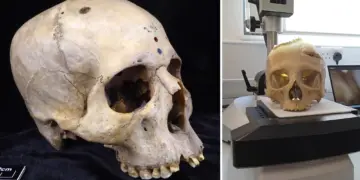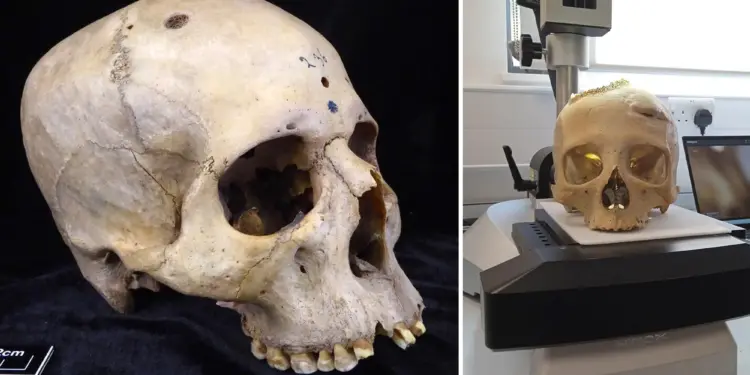By Ebi Kesiena
Researchers have made a groundbreaking discovery by examining a 4,000-year-old Egyptian skull, revealing early attempts at treating cancer.
The skull, along with another ancient skull, was analyzed at the Duckworth Laboratory at the University of Cambridge. The first skull, from a woman in her 50s, dates back to between 664 and 343 B.C., while the second, belonging to a man aged 30 to 35, is even older, dating to between 2686 and 2345 B.C.
In a study published on Wednesday in the journal Frontiers in Medicine, researchers believe they may have been working on a treatment for cancer 4,000 years ago.
“It is clear according to preserved papyri and hieroglyphs that ancient Egyptian medicine was advanced enough to describe, classify and successfully treat specific diseases and traumatic injuries, including bone trauma,” researchers said.
Both skulls had large lesions indicating bone cancer. Digital scans showed small tool-made lines around the lesions, suggesting early surgical intervention. These cuts showed signs of healing, indicating the individuals survived for a short time after the procedures.
The study suggests these marks were made either to remove the cancerous lesions or to explore them further. This discovery is considered one of the oldest known cases of cancer treatment in ancient Egypt.
Study author Edgard Camarós noted, “This is the first evidence of a surgical intervention directly related to cancer, this is where modern medicine starts.”
Professor Camarós emphasized that this discovery shows ancient Egyptians were attempting to understand and treat cancer over 4,000 years ago adding that more research is needed to understand the effectiveness of these ancient treatments, but this finding highlights the early efforts of ancient Egyptian medicine to combat cancer.




































